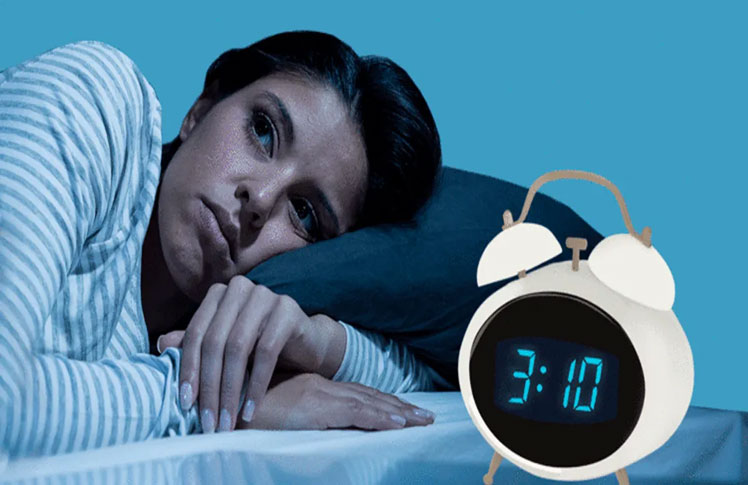
Date :- 06-01-2023
Watsupptoday Desk
Our sleep patterns definitely see a shift during winter. As days become shorter accompanied by scanty sunlight, even our circadian rhythm witnesses a change in our sleep and wake up time. A recent study, by researchers at the University of Washington, measured the sleep patterns of the students on the campus that illustrated how going outside during the day is connected to your sleep. The study, which was published in the Journal of Pineal Research, found that UW students slept during the later hours of the day and woke up late in the morning in winter. In the cold months, the city faced limited daylight and skies were mainly overcast. Horacio de la Iglesia, senior author of the study, a UW professor of Biology, said that even though our bodies have a natural circadian rhythm that tells us when we should go to sleep, if we don't get enough light during the day, especially when the sun is out, it delays the clock and pushes our sleep time. Wrist monitors were used as a measure of sleep patterns and light exposure on 507 college undergraduate students from 2015 to 2018. The research indicated that the students were getting roughly the same amount of sleep each night regardless of the season. But in winter, during school days, the students were going to bed approximately 35 minutes later than on other days and woke up, on an average, 27 minutes later than in summer. The finding surprised the team, who observed that the city received nearly 16 hours of sunlight in summer and just over eight hours of sunlight in winter. Horacio de la Iglesia said, "We were expecting that in the summer students would be up later due to all the light that's available during that season." The researchers were able to conclude that something in winter was "pushing back" the students' circadian cycles based on the student sleep data. For the students, the team observed that the circadian cycles, which is the body's process of physical, mental and behavioural changes in a 24-hour cycle, were running up to 40 minutes later in winter compared to summer. The explanation for this was focused on light for this delay in winter. "Light during the day, especially in the morning, advances your clock, so you get tired earlier in the evening, but light exposure late in the day or early at night will delay your clock, pushing back the time that you will feel tired," said the senior author. Therefore, the time you fall asleep is a result of the push and pull between the opposite effects of light exposure at different times of the day. "It’s that push-and-pull effect. And what we found here is that since students weren’t getting enough daytime light exposure in the winter, their circadian clocks were delayed compared to summer". The study not just refers to college students but to all those who are exposed to artificial light when they're indoors during the day. "What this study shows is that we need to get out, even for a little while and especially in the morning, to get that natural light exposure. In the evening, minimize screen time and artificial lighting to help us fall asleep".
Leave a comment: (Your email will not be published)